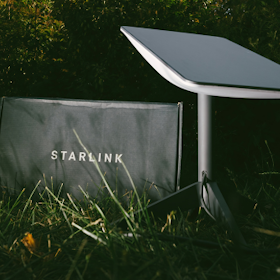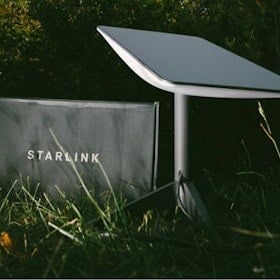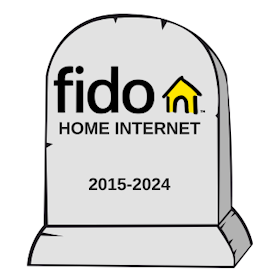.jpg)
Article Summary
You'll want between 150 Kbps and 1.1 Mbps to run Zoom. Of course, the size of the call, the number of people sharing your WiFi signal, and the speed of your internet connection will all play into how smooth your call is.
These are just minimum speeds though—for the optimal Zoom experience, you'll want much more than that from your internet plan. Fortunately, internet providers in Canada offer plans that generally include at least 25-50 Mbps speeds.
How Much Internet Speed Do You Need for Zoom?
In order to successfully run Zoom, you’ll need a minimum speed of 600 Kilobits per second (Kbps), or 0.6 Megabits per second (Mbps). Keep in mind that Zoom recommends 1Mbps download speed for larger meetings. Also, if you’re trying to Zoom in 1080p resolution you'll need a faster internet speed higher and go up to minimum 2.5 Mbps.
How Can I Speed Up My Zoom?
Poor audio quality, frozen screens and disconnections are all common occurrences with Zoom. If any of these hiccups keep happening, you could try any of the following:
- Reset your router
- Switch from a wireless connection (WiFi) to a wired ethernet connection
If it continues to be an issue, you can look into purchasing a WiFi extender or mesh system to help amplify your signal throughout your house or try following our slow internet troubleshooting guide.
How Much Data Does Zoom Use?
To run Zoom, the application uses 540MB-1.62GB of data per hour for a one-on-one call, and 810MB-2.4GB per hour for group meetings. The bigger your Zoom meeting (i.e. the more people in it), the more data Zoom requires. Of course, a 1:1 meeting doesn’t use a ton of data and don’t require a lot of internet speed. However, keep in mind that when you’re on a Zoom call, your internet is still being used on other devices in your home. If you have other family members who are also on a Zoom call or using the WiFi connection, this could slow down your speeds.
Enjoying a seamless video conferencing experience depends on your resolution. While Zoom doesn’t publish exact data usage figures, they do provide internet speed requirements for different kinds of video calls.
Best Upload Speeds for Zoom
Below are Zoom’s data usage requirements for group calls, including download speeds, upload speeds, and quality. If you’re working from home and using Zoom to communicate with team members regularly, it’s important to know what download and upload speeds you need to ensure that you have a smooth experience.
Recommended Upload Speeds (per hour) for Zoom Group Calls
| Quality | Download Speeds | Upload Speeds | Total |
|---|---|---|---|
| High | 450 MB | 360 MB | 810 MB |
| 720p | 675 MB | 675 MB | 1.35 GB |
| 1080p | 1.2 GB | 1.2 GB | 2.4 GB |
Best Upload Speeds for 1:1 calls on Zoom
This graph shows that the best upload speed for a 1:1 call on zoom is 270 MB per hour if you’re looking for high quality and resolution. Be sure to check with your internet service provider (ISP) about whether you have data caps on your internet plan, as these MB can quickly add up during a long call.
Recommended Upload Speeds (per hour) for a Zoom 1:1 Call
| Quality | Download Speeds | Upload Speeds | Total |
|---|---|---|---|
| High | 270 MB | 270 MB | 540 MB |
| 720p | 540 MB | 540 MB | 1.08 GB |
| 1080p | 810 GB | 810 GB | 1.62 GB |
Calling all gamers
The internet speeds that you'll require for Zoom are just a part of your bandwidth needs. Online gaming is a whole other facet of your internet usage. We have a whole online gaming guide on the subject that will walk you through everything you need to know.
Related Articles
Find Better Internet and Phone Plans
Hundreds of internet plans unpacked. All the facts. No surprises.
Internet Providers by Provinces and Territories
- Internet in Alberta
- Internet in British Columbia
- Internet in Manitoba
- Internet in New Brunswick
- Internet in Newfoundland and Labrador
- Internet in Northwest Territories
- Internet in Nova Scotia
- Internet in Nunavut
- Internet in Ontario
- Internet in Prince Edward Island
- Internet in Quebec
- Internet in Saskatchewan
- Internet in Yukon Territory











































